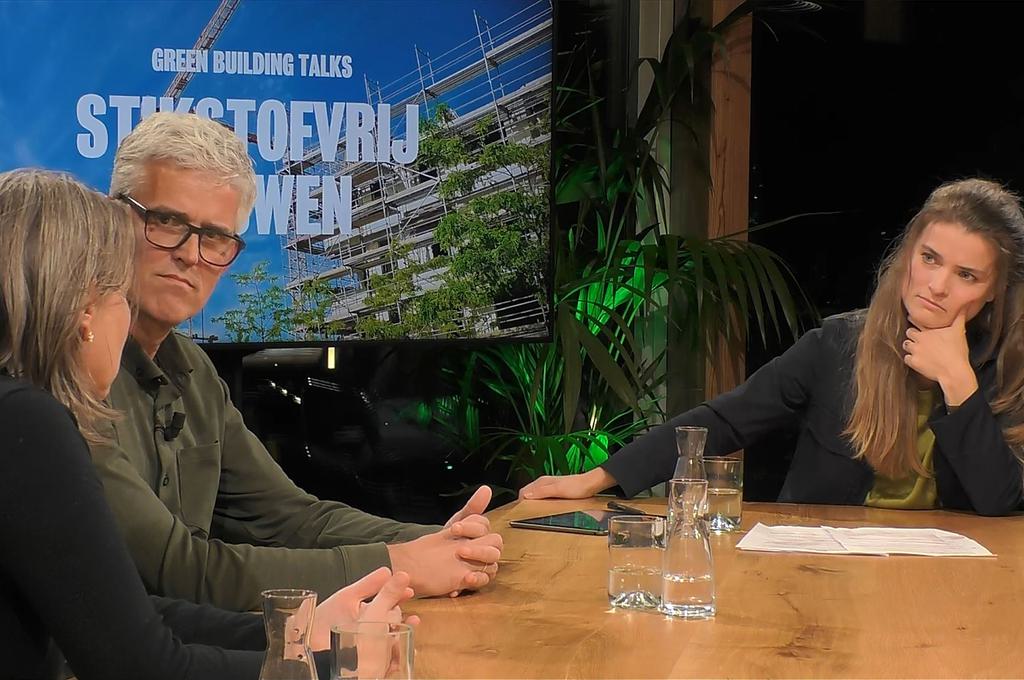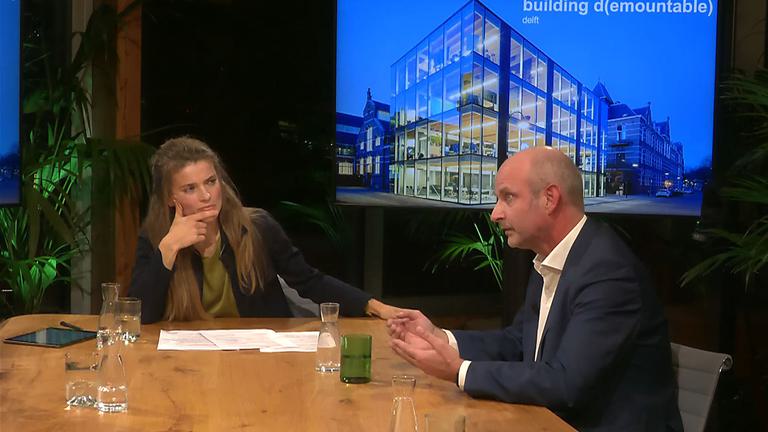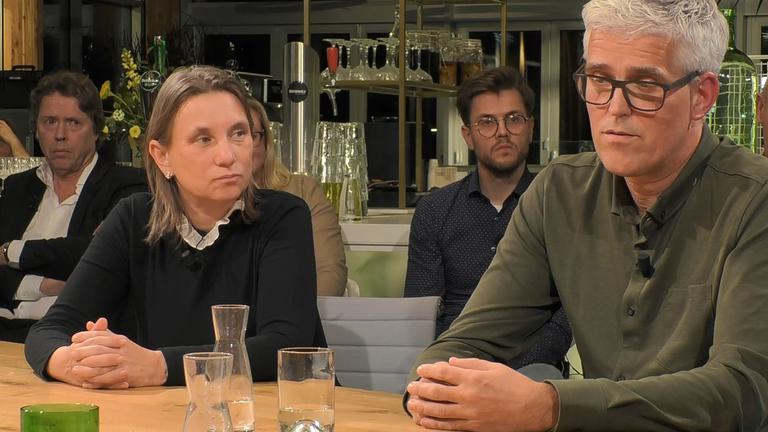Is the Netherlands in transition to emission-free construction, due to the scrapping of construction exemption by the council of state last month? With this question, journalist and moderator Dore van Duivenbode kicked off the discussion last night on nitrogen-free building. At the table were Jan Kadijk (Dutch Green Building Council), Laura Bromet (Groenlinks MP) and Menno Rubbens (cepezedprojects), among others.
fundamentally different
From the Dutch Green Building Council (DGBC), we have been working for years to promote transition to sustainable construction. You could say: scrapping the building code (bouwbesluit) helps for many parties to make that step. “In that respect, the nitrogen crisis is a fantastic stimulus to start building fundamentally differently”, said Jan Kadijk, manager of knowledge & innovation at DGBC. According to Kadijk, discussing a new regulation for residential construction makes no sense because you keep running into new problems. “Nitrogen, the CO2 budget, material shortages. We need to look at the whole picture and connect all these issues. That means we have to build fundamentally different.”
the building code must be revised
According to GroenLinks MP Laura Bromet, “the rules as they are currently designed are based on a certain way of building. “We should actually get rid of that, because a new model doesn't fit in very well. The whole building code should be shaken up, to give the very frontrunners the chance to make the transition faster.”
different way of designing
cepezedprojects, by circular hero Menno Rubbens, is a pioneer in this process: “If you want to control emissions in construction, that means you have to build in a different way. And if you want to build in a different way, you also have to design in a different way,” Rubbens argues. “At cepezed, we try to prefabricate a building as a construction kit (‘kit of parts’). You have much more influence on the quality then, and also where the emissions take place." Because “emissions are easier to capture and control in the factory than on the construction site,” he states.
low-nitrogen project
Rubbens is involved in the construction of the temporary care center PI Scheveningen, ‘only 20 meters’ from natura 2000 areas Meijendel and Berkheide. “With cepezed, we are often involved in the beginning of a project as a project developer. That is actually where a start is made for the control of emissions. It comes about in the dialogue with the client, the builder and the architect,” says Rubbens. In the PI Scheveningen project, low-nitrogen construction is the goal, and that shared mindset forms the basis of this project.
call for innovation
Both Kadijk and Rubbens look forward to coming innovation, but “there is too little electric equipment available in the Netherlands,” Bromet argues. “That reminds me of the breathing machines in corona time. Back then, a breathing machine was assembled in every garage. So bring it on”, Jan Kadijk challenges the industry. According to Rubbens, short-term action is not all that is needed. Existing production processes, of steel and concrete for instance, should be made sustainable in the longer term. For example, steel production at Tata Steel by green hydrogen. “That can ensure that in 20 years' time you won't be facing the next problem”, he says.
organization
The discussion ‘Green Building Talks: Nitrogen-free building - Not a choice but a necessity’ took place on 30 November at The Circle, who organised this evening together with Pakhuis de Zwijger and the Dutch Green Building Council. Other speakers at the event were: Jan Fokkema (NEPROM), Leontien de Waal (ABN AMRO, Sector Banker Bouw), Joris Deur (ZZDP Architects), Tom Blankendaal (circular economy BAM Bouw en Vastgoed Nederland), Atto Harsta (transition strategist biobased building), Albert Dun (Dun Agro) and Lev Avitan (spoken word artist).
Watch the entire broadcast here.
Nitrogen crisis necessitates revolution in construction sector



contact
→ Mail bd@cepezed.nl or call our business development team on +31 (0)15 2150000
→ Mail bd@cepezed.nl or call our business development team on +31 (0)15 2150000